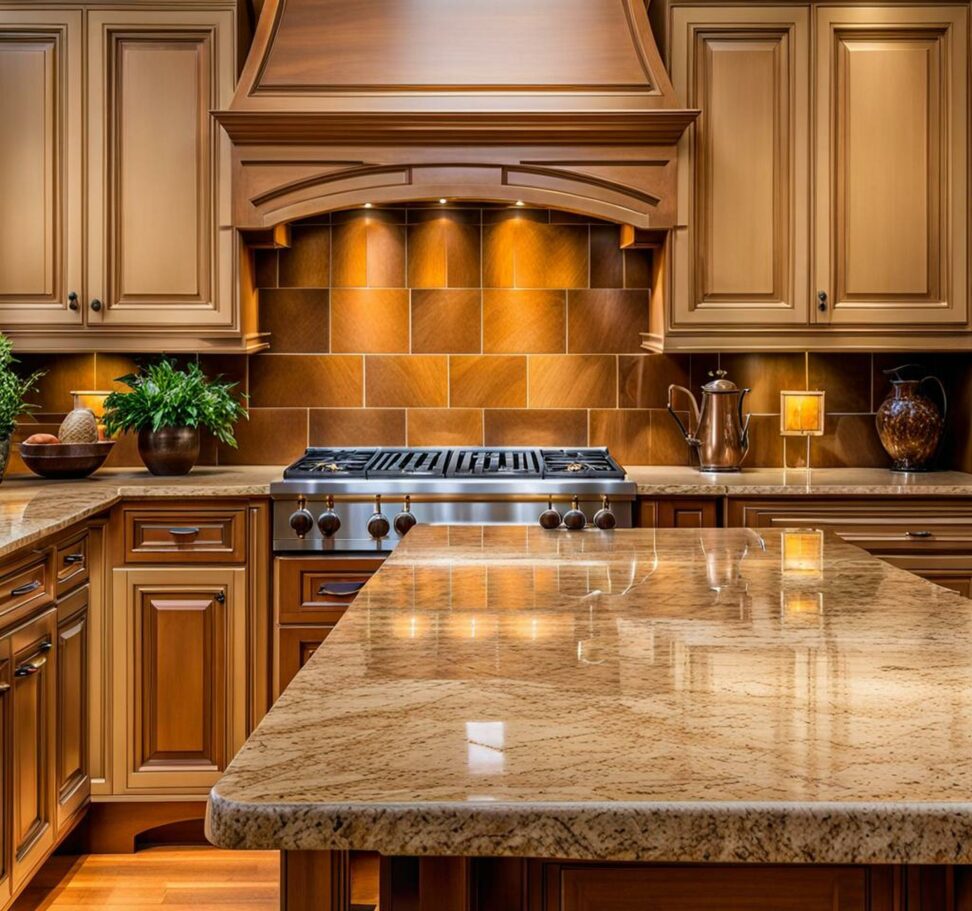What You Must Know Before Choosing Kitchen Countertops
Selecting new countertops can be an exciting part of renovating your kitchen, but it's not a decision to take lightly. The counters you choose need to be durable, easy to maintain, and fit your lifestyle and budget. With popular options like granite, quartz, laminate, and tile, how do you know which is the best choice for your home?
Read on for expert advice to make an informed decision you'll enjoy for years to come.
Countertop Durability Comparison
When evaluating durability, it's helpful to understand the composition of each material and how prone they are to damage over time.

Granite
Granite is a natural stone mined from quarries worldwide. Prized for its elegance and timeless look, granite is very hard and heat resistant, making it ideal for baking and hot pots. However, it is somewhat porous and requires yearly sealing to prevent stains. Granite can chip or crack if subjected to heavy impact.
Quartz
Engineered from crushed quartz and resin, quartz countertops are non-porous and practically indestructible. They resist scratches, heat, stains, and mold growth. The seamless installation gives a sophisticated modern look. However, quartz has a higher price tag than other materials and limited style options.
Laminate
Laminate counters are made by fusing plastic resin to a wood substrate. While very affordable, laminate is susceptible to burns, scratches, moisture damage, and impact dents. The seams are also more visible. But improvements in printing technology allow laminate to mimic luxe surfaces like granite and marble.
Key Factors in Choosing Countertops
Along with durability, there are other important considerations when selecting your new countertops.
Usage and Lifestyle
How you use your kitchen should dictate the ideal countertop material. Frequent cooking and food prep calls for a very durable and stain-resistant surface. Homes with kids and pets need to withstand heavy daily use. If you entertain often, beauty and wow-factor may trump practicality.
Maintenance Requirements
Consider the regular care needed to keep counters looking like new. Granite, for example, needs yearly sealing to prevent stains. Quartz requires almost zero maintenance. Tile and grout needs consistent cleaning. Factor in costs of professional services for repairs or resurfacing.
Costs
The upfront cost of materials and installation varies widely by material. Long term, factor in maintenance fees and potential impact to resale value. More durable options like quartz will keep their value and appeal to buyers.
Aesthetics
Countertop appearance is both personal preference and design style. Look for materials and colors that give your desired modern, rustic, or classic look. Evaluate options for finishes, edge profiles, and backsplashes. Seamless materials like quartz provide a smooth uniform surface.
Top 5 Most Durable Countertop Materials
Based on composition, strength, and real-world performance, these emerge as the most durable kitchen countertops.
1. Quartz
Quartz surfaces are engineered for optimal durability. The resin binds the crushed quartz into a solid non-porous material that resists scratches, stains, impact, and heat up to 300degF. Maintenance is effortless.
2. Granite
Granite's density and hardness make it very impact and heat resistant. Proper sealing fills pores to prevent stains. Avoid acidic foods and use trivets to prevent etching and discoloration. Granite adds timeless beauty to any kitchen.
3. Quartzite
Quartzite begins as sandstone transformed under intense heat and pressure into a material harder than granite. Without pores to seal, quartzite needs little maintenance and withstands cuts, scratches, and heat up to 300degF.
4. Solid Surface
Solid surface blends natural minerals with acrylic resin to create a seamless, nonporous material that resists stains, burns, and impact damage. It can be fabricated into integrated sinks and counters.
5. Ceramic Tile
Unglazed ceramic and porcelain tiles stand up well to heavy daily use. Their hardness resists cuts, scratches, heat, and stains. The grout is more prone to staining but can be sealed. Large format tiles have fewer grout lines to clean.
Enhance Durability With Proper Installation
Even durable countertop materials can underperform if not installed correctly. Hiring an experienced fabricator is advised. They will:
- Follow manufacturer instructions precisely
- Allow materials to acclimate to your home's temperature/humidity
- Use proper adhesives and sealants for a strong bond
- Precision cut seams and drill faucet holes for minimal cracks
- Seal and polish surfaces as needed for durability and shine
FAQs
What finish is most scratch resistant?
Polished finishes better resist cuts and scratches than honed or leathered finishes.
How often does quartz need to be sealed?
Never - quartz is non-porous so it does not require any sealing.
Is concrete better than granite?
Concrete matches or exceeds granite in strength and heat resistance. It allows more customization but requires more sealing.
Choosing durable, low-maintenance countertops is critical for withstanding heavy use in busy kitchens. But aesthetic, cost, and installation factors also impact the decision. By weighing all considerations, you're sure to find the ideal counters to suit your home and lifestyle.
Quartz and granite emerge as favorites for their resilience and longevity. But don't rule out elegant yet durable options like quartzite, solid surface, and ceramic tile. Discuss your priorities with a kitchen designer and review samples before making a selection.
The beauty and function of your kitchen should be boosted by proper care. Invest wisely, and you'll enjoy the results every time you cook a meal or entertain guests.